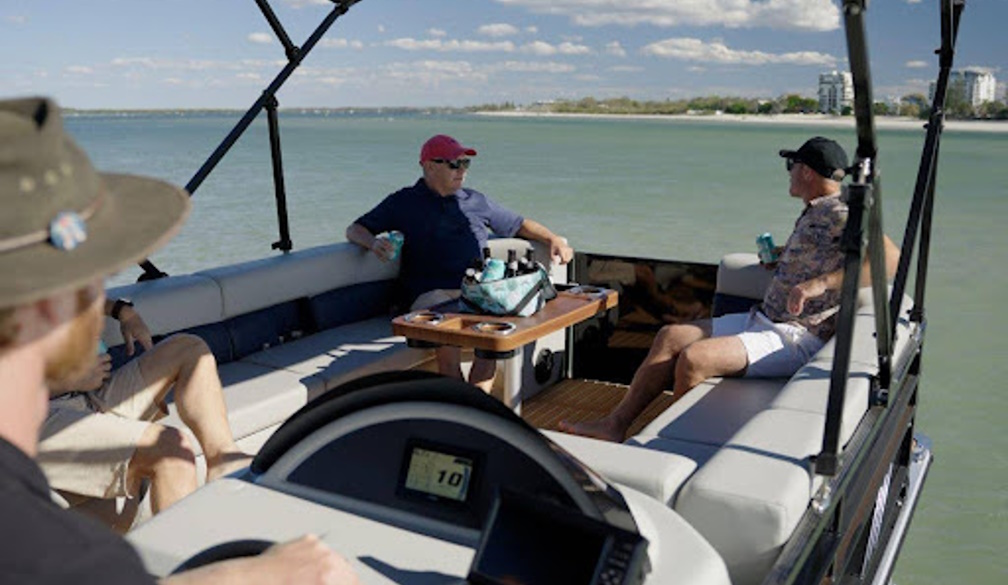The economics of Australia's too-common leadership spills
- Written by Brendan Markey-Towler, Researcher, The University of Queensland
At the end of another week of chaos in Canberra, we’re all asking why this keeps happening. Why are our leaders playing politics instead of governing?
A somewhat esoteric sub-field of economics known as Public Choice Theory suggests it really does come down to two things. First, the technological advances that have given politicians feedback in real time. Second, Australia’s comparatively small parliament.
Politicians aren’t mad or bad, they have an incentive to do what is necessary to hold their seat in parliament. They have no incentive to govern except insofar as it helps them keep their seat.
The trouble is, the vast volumes of data we generate create a never-ending tsunami of information. It’s not just traditional opinion polls such as Newspoll, but also Twitter and Facebook “trending” feeds and hashtags, Google search data, YouTube, endless online polls and petitions.
All of this changes the incentives politicians face almost in real time. Of course they’d be changing leader more often! And with a comparatively small parliament, it is comparatively easy to do just that.
The irony then is that for all we say we wish the politicians would respect our say and get on with governing, our revolving door prime ministers are the result of the politicians being too responsive to what we think, and our having too few of them.
The perverted incentives of spills
Public Choice Theory starts from the presumption politicians aren’t principled heroes or evil dictators in waiting. They’re just regular people like you and me. They face incentives to which they try to respond as rationally as they can.
Now it doesn’t really matter whether a politician has conviction, hunger for power or they’re simply a hack. They can’t do anything unless they win elections. Hence, as Anthony Downs realised in his seminal work on Public Choice Theory, they have an imperative incentive to do and say what they can to win elections.
What some might call slavish adherence to public opinion is actually, from the perspective of Public Choice Theory, perfectly reasonable behaviour. Politicians can’t do anything unless they can get the votes of the public first, so they need to know what to say and to do to get them.
Read more: 'Balmain basket weavers' strike again, tearing the Liberal Party apart
Our present trouble with “revolving door” prime ministers makes a lot of sense from this perspective.
In the internet age, politicians’ knowledge of what to do and what to say to get the votes and win the elections is changing almost in real time.
Release a National Energy Guarantee policy? You’ll find out within weeks what the public thinks about it. Make a statement about immigration? You’ll find out within hours how it’s playing with the kids on social media. You’ll find out day to day how your leader is performing relative to the other guy just by monitoring the news sites.
Now of course that’s not limited to Australia, and countries with similar systems haven’t had the same revolving door leadership as us.
What sets Australia apart is that our parliament is very small compared with other countries (because of an obscure part of the constitution known as the “nexus” provision). We have only 150 members of the lower house compared with, for instance, Canada (which has 338) and the UK (which has 650).
It’s therefore much easier in Australia to respond to changing incentives by building a faction in favour of changing the leader simply because there are fewer people to persuade.
Put that all together, and of course you’d have a revolving door prime minister! What else would you expect?
Can a stable majority exist?
So what’s to be done?
One possibility is to do as the ALP has done, and require a supermajority of the party room to spill the leadership. This (in theory) makes it much more difficult to change the leadership.
Another, probably unpleasant possibility, is to significantly increase the size of parliament. A larger parliament makes it much more difficult to build factions in favour of changing the leadership.
Another, more direct response is to simply break the cycle and for us to take responsibility for the state of our own democracy. That is, if we actually do care about stable government.
Read more: Reporters or players? What is the media's role in leadership struggles?
The politicians will always respond to their incentives. They’re people. It’s never going to change. So we need to stop changing the incentives they face in real time as much as we can.
You yourself can do something about that. Stop responding to pollsters. Stop “liking” and retweeting the political topics. Stop endlessly following the political clickbait. Ironically, stop paying attention to politics and get on with your life except where your civic duty absolutely demands it.
Public Choice Theory suggests our increasingly regular leadership spills are because politicians are, ironically, too responsive to what we think and there are too few of them. If we want stable government, we can tinker with party constitutions to disincentivise leadership spills: we can increase the size of parliament to make it harder to build factions for changing the leader.
But the most direct way to achieve it is to stop telling them what we think incessantly, and deliver judgement only where it matters most – the ballot box.
Authors: Brendan Markey-Towler, Researcher, The University of Queensland
Read more http://theconversation.com/the-economics-of-australias-too-common-leadership-spills-102049



















